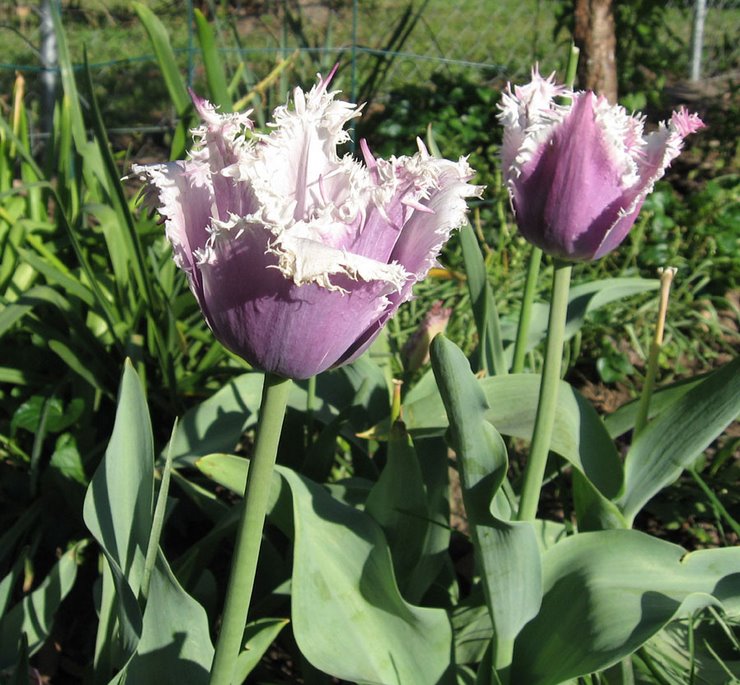This week my current batch of compost looked ready to go, so today I emptied out my tumbling composters, and spread the finished compost in my garden. How do you know the composting process is complete? When you can no longer recognize the original materials, and it just looks like nice dark, loose garden soil.
I put an inch or two thick layer of compost over the surface of selected flower and veggie beds. Next time, I'll choose other beds, until hopefully every garden area will be so blessed over the course of the summer.
The layer of compost will help hold moisture in the soil from evaporating, help smother weeds, and encourage earthworms. As the compost begins to break down it will enrich the soil, feeding the plants and helping create a nice, crumbly, loose garden soil. Earthworms tunnel up through the soil and draw bits of the compost down, and deposit their rich castings, which are almost pure fertilizer. These tunnels help aerate the soil, allow it to be better drained, and easier for plants' roots to penetrate. Worm castings bring soil nutrients up to the surface from as deep as eight feet down, and in a form more easily absorbed by plants. Soil tunneled by the worms absorbs more water and more quickly than hard-packed soil, rather than having it just run off into the storm drains.
Earthworms break down thatch and fallen leaves in the lawn, spreading
the nutrients throughout the top 12 inches or more of the soil.
Earthworms improve the fertility and texture of the soil in ways that help plants. Tests have shown that crops yield 25% to 300% more in soils with earthworms than they do in soil without earthworms.
So how do you attract earthworms to your garden, or encourage their population to grow? One of the best ways is by using lots of nice, organic mulches such as compost, or shredded leaves or grass cuttings. Such mulch shades the soil, keeping it cooler and more moist, which is more liveable for the earthworms. Compost serves as food for the worms as well. Avoid using synthetic garden chemicals, whether as fertilizers or pesticides. These can kill earthworms. Most organic fertilizers are beneficial to worms, and will increase their population.
Earthworms have been called the unpaid handyman of the garden. Welcome them to your garden with lots of compost!

1 comment:
I knew worms are good for my lawn, but didn,t know what they do that helps the grass. Especially interesting that having lots of worms saves water!
Post a Comment